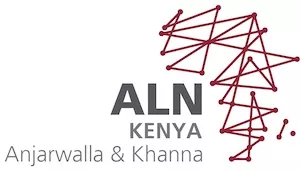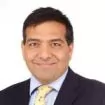- in United States
- within Antitrust/Competition Law, Transport and International Law topic(s)
Building a strong ecosystem of like-minded institutions to make access, affordability and quality healthcare available to all including the less fortunate is important, observes ALN Kenya Managing Partner Karim Anjarwalla as he lay the ground for discussions at the Transforming Healthcare Through a First Mile Approach in Lamu and Beyond webinar held on 22 September 2021. The virtual webinar event was themed around enhancing access to healthcare for those who need it most with an emphasis on the partnership between Safari Doctors and Bomu Hospital.
The Webinar which was moderated by Francesca Properzi, the current Director of Research at DT Consulting, hosted a panel of seven speakers from different professional backgrounds, one of whom was Umra Omar, the founder of Safari Doctors. Umra began by explaining the concept of the first mile approach to healthcare in Kenya as:
"A model that re-shifts the health conversation by putting those in the corners of the community the focal point and enabling them to access quality healthcare in their first mile".
She also highlighted that the collaboration between Safari Doctors and Bomu Hospital, who's CEO and Principal Investigator Dr. Aabid Ahmed was present as a speaker, was a collaboration that was centered on dignified tertiary healthcare and addition of a third wheel which is a center for excellence in teaching practices around healthcare. Dr. Aabid Ahmed proceeded with a presentation on Bomu Hospital, its services, clientele, reach and model of operations. He expounded on the Hospital's social enterprise model which uses the resources gained from donors, grants and revenue from healthcare services to provide care and support to vulnerable groups and communities.
"The work at Bomu Hospital is aimed at creating sustainable healthcare models and initiatives that transform the lives of not only the people of Lamu, but Kenyans as a whole," said Dr. Aabid.
Saad Sheikh, a principal at TLG Capital joined the discussion and started by commending Dr. Aabid and Umra on their work in Lamu and reiterated the importance of progressing the conversation around the first-mile healthcare model in order to figure out how capital can work for such an initiative.
"The awareness created by the initiative will help catalytic partners, individuals and even private capital holders to know where to direct their capital effectively," commented Saad.
Saad also mentioned his work with PharmAccess Kenya whose main focus is making healthcare inclusive and progressive through innovation and technology. The Regional Director for Advocacy and Partnership at PharmAccess Foundation, Millicent Olulo, continued the conversation by highlighting partnerships with the private sector that have progressed the agenda of accessible and affordable healthcare across the country. She emphasized that whatever the private sector offers, it will always be complementary to the public sector and therefore encouraging continued collaboration.
James Norman, an Author and Insurance sector expert with over 19 years' experience, joined the discussion by highlighting the important role of insurance in health centered partnerships because insurance not only transfers risk and build confidence, it grows the GDP of the country through premiums, and the capital gained can be re-invested into healthcare innovation and technology. He welcomed insight from the audience about the notion that Insurance has for a long time been perceived as a luxury and almost unattainable by the less fortunate and while agreeing to these sentiments, he added that if insurance is made simple, affordable and scalable by increasing access through education, then trust will be built. He recognized the need for insurance companies to re-invent their strategy, mindset, culture and their value proposition to help drive sustainable healthcare initiatives.
Caitlyn Dolkart who was successful in re-designing an Insurance model rescue.co as part of Flare, an emergency response system which she co-founded and is the Managing Director, agreed with the sentiments of James Norman, and continued to explain how re-designing an insurance model to become more inclusive has helped transform the general perception and the healthcare process as a whole. She highlighted that Ambulances and first response mechanisms are the pathway to get from the first mile to the last mile, and concluded by adding that efforts to re-imagine the healthcare model in Kenya and the partnership between Safari Doctors and Bomu Hospital will be successful because they are impact centred.
"At Anjarwalla & Khanna, we are keen on participation in conversations around regulatory and legislative reforms, and how they can be implemented in order to make the value chain more viable," said Karim, as he emphasised key action points centred on capacity building, bankability and technical assistance.
Saad Sheikh committed to finding methods to provide capital for the initiative and to take part in the development plan for Shungwaya Hospital in Lamu. Millicent agreed to continue conversations with both Umra and Dr. Aaabid to find ways to benefit financially from the private sector given success with other initiatives i.e. M-tiba. Caitlyn agreed to share lessons and insights gained from growing Flare and encouraged membership to rescue.co to increase healthcare accessibility.
The panel of speakers agreed to collaborate in different capacities to ensure the initiative started as a partnership between Safari Doctors and Bomu hospital is able to achieve its set mandate.
The content of this article is intended to provide a general guide to the subject matter. Specialist advice should be sought about your specific circumstances.
[View Source]

